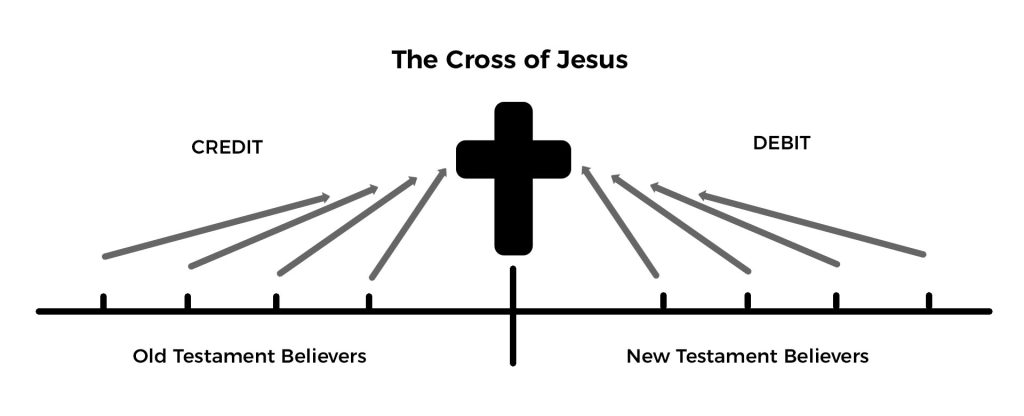
The question of how people were saved during the time of the Old Testament can be perplexing for some individuals. In the era of the New Testament, we understand that salvation comes through grace by placing faith in Jesus Christ (John 1:12; Ephesians 2:8-9). Jesus is the Way (John 14:6). However, prior to the advent of Christ, what constituted “the way”?
There exists a common misconception regarding the Old Testament’s path to salvation, suggesting that Jews attained salvation by adhering to the Law. It may be assumed that since they possessed the Law of Moses, they could somehow achieve salvation by partially observing the Law and engaging in good deeds. Yet, scriptural evidence refutes this notion. Galatians 3:11 states, “Now it is evident that no one is justified before God by the law, for ‘The righteous shall live by faith.'” Although some may attempt to dismiss this passage as applicable only to the New Testament, Paul quotes Habakkuk 2:4, illustrating that salvation by faith, separate from the Law, was an Old Testament principle. Paul teaches that the Law served as a “tutor to bring us to Christ, that we might be justified by faith” (Galatians 3:24). Furthermore, in Romans 3:20, Paul emphasizes that adherence to the Law did not save Jews in the Old or New Testaments because “no one will be declared righteous in his sight by observing the law.” The Law was never intended to serve as a means of salvation; its purpose was to make us “conscious of sin.”
If keeping the Law did not constitute the Old Testament way of salvation, then how were people saved? Thankfully, Scripture readily provides the answer, leaving no doubt regarding the Old Testament’s path to salvation. In Romans 4, the apostle Paul explicitly asserts that the Old Testament way of salvation aligns with the New Testament way: salvation is achieved solely through grace, faith, and in Christ alone. To support this claim, Paul directs our attention to Abraham, who obtained salvation through faith: “Abraham believed God, and it was credited to him as righteousness” (Romans 4:3). Once again, Paul quotes Genesis 15:6 from the Old Testament to substantiate his argument. Abraham could not have been saved by adhering to the Law since he lived more than 400 years before its establishment.
Paul proceeds to demonstrate that David also obtained salvation through faith (Romans 4:6-8, quoting Psalm 32:1-2). He further establishes that the Old Testament way of salvation was solely through faith. In Romans 4:23-24, he writes, “The words ‘it was credited to him’ were written not for him alone, but also for us, to whom God will credit righteousness – for us who believe in Him who raised Jesus our Lord from the dead.” In other words, righteousness is “credited” or granted to those who have faith in God. Abraham, David, and all of us share the same path to salvation.
A significant portion of Romans and Galatians addresses the fact that there is only one way to attain salvation and one gospel message. Throughout history, people have distorted the gospel by incorporating human works, demanding specific actions to “earn” salvation. However, the Bible unequivocally communicates that the path to salvation has always been through faith. In the Old Testament, faith centered on the promise that God would one day send a Savior. Those who lived during the Old Testament era anticipated the Messiah and believed in God’s promise of the coming Servant of the Lord (Isaiah 53). Those who exercised such faith were saved. Today, we look back on the life, death, and resurrection of the Savior, Jesus Christ, and attain salvation through faith in His atonement for our sins (Romans 10:9-10).
The Gospel is not exclusively a New Testament message; it is present in the Old Testament as well. “The Scripture foresaw that God would justify the Gentiles by faith and announced the gospel in advance to Abraham: ‘All nations will be blessed through you.'” So, those who have faith are blessed along with Abraham, the man of faith (Galatians 3:8-9, quoting Genesis 12:3).
As early as Genesis 3:15, we encounter the promise of a forthcoming Savior. The Old Testament contains numerous promises that the Messiah would “save His people from their sins” (Matthew 1:21; cf. Isaiah 53:5-6). Job’s faith rested in the certainty that his “Redeemer lives, and that in the end, he will stand upon the earth” (Job 19:25). Clearly, the saints of the Old Testament were aware of the promised Redeemer, and they attained salvation through faith in that Savior, just as people do today. There is no alternative path. Jesus is “‘the stone you builders rejected, which has become the cornerstone.’ Salvation is found in no one else, for there is no other name under heaven given to men by which we must be saved” (Acts 4:11-12, quoting Psalm 118:22).
Discussion Questions

- Take a look at the diagram above. Most of us know how credit cards and debit cards work. How does this apply to salvation before and after the Cross of the Lord Jesus Christ?
- Read Genesis 12:3, Genesis 15:1-6 and Genesis 17:4-5. What did God mean when He promised Abram/Abraham that “in you all the families of the earth shall be blessed” and that he would be the father of a “multitude of nations?”
- Why was the Law of Moses given?

One Comment
Pastor Abhishek Das
This was a wonderful study for me, which helped me understand this subject in a better and simpler way.